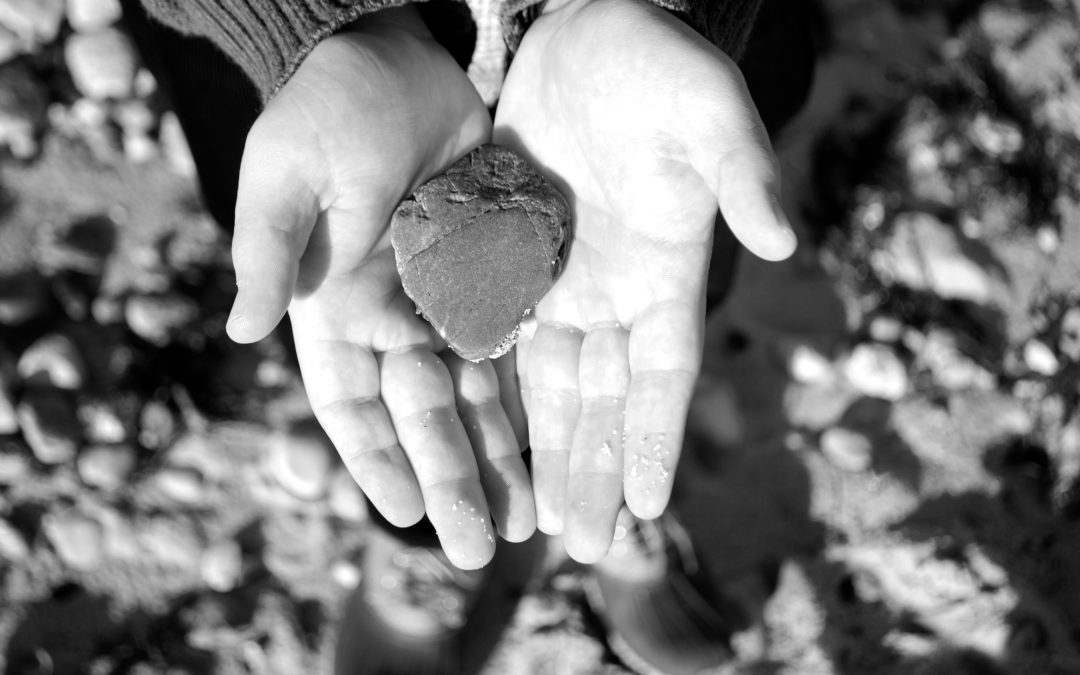In business and in life, I am often asking myself why I am here. What is the difference I am here to make? Sometimes that is a big, general life question – what am I supposed to do with this life? And sometimes that is a small, daily question – what am I supposed to do TODAY that makes a difference?
After the presidential election, I observed the aftermath of emotion, concern, and turmoil in many around me. I saw people unfriending each other on Facebook based on who they voted for. I heard about families divided over their Thanksgiving dinners, or people even choosing not to visit family members at all for the holidays because of opposing political views. I don’t begrudge any of those actions. Sometimes we do need to protect ourselves, create boundaries, communicate clearly what we stand for and what we are unwilling to tolerate. I only bring this up to emphasize the degree to which many people feel polarized and unable to communicate with the “other side” (whatever that is). Many feel afraid they won’t be heard; some feel defensive, hurt, perhaps even afraid of the views of others.
So in that environment, that question came to me again: “What is there for me to do right now?” Not what is there for me to do in January, or next year, or for the next four years, but now?
The answer came to me in a quiet voice. Lovingkindness, it said. I knew that my job, at least for now, was to bring the ancient Buddhist practice of Lovingkindness (Metta) meditation both into my own daily meditation practice and to share it with the students in my classes.
If you have been in my classes this last few weeks, you have done lovingkindness practice. You start with the intention for caring: using words, phrases of well wishes, first directed to yourself, then outward, to others.
What is lovingkindness? Lovingkindness is an attitude of caring for yourself and others. A sense of interest and kindness, friendliness. In the words of meditation teacher Sharon Salzberg, it is:
“an inner knowing that our lives are all inextricably connected. Lovingkindness is a power of the heart that honors this connection. When we practice it, we acknowledge that every one of us shares the same wish to be happy, and the same vulnerability to change and suffering.”
We are all in some way connected. We all suffer. We all want to be happy. These are fundamental truths that we all experience.
Two students came up to me in class the other day after our lovingkindness practice, and they both said some version of the same thing. “I’m afraid that you are going to ask me to send lovingkindness to ___________”, said one. “This person who is really hard for me to deal with keeps coming into my mind during lovingkindness practice, and I keep pushing them away,” said the other.
They both were expressing a fear of not knowing how to extend love to the people they found most challenging in their life. We all have that fear.
I have purposely gone slowly with this practice in my classes. The first week, we only focused on ourselves: sending ourselves these words of caring, of wishes of well-being. This can sometimes be the most challenging practice for us – we are confronted with our challenge of loving and accepting ourselves and all our mistakes, faults, and foibles. We are often our harshest critics. As I remind students, you don’t have to feel any special way to practice lovingkindness. What’s most important is simply the intention: can we offer ourselves kindness in the way we would a friend, or someone we know and love that is struggling?
Each week we have been adding a person – someone that we love and is easy for us to extend well wishes. Someone we don’t know well, someone that we know is struggling. And yes, we will get to that difficult person.
We don’t have to start with the most difficult person. We can ease our way in with offering lovingkindness to someone who we simply don’t like very much. And if we are struggling with extending this intention of caring, that’s ok. We can always come back to ourselves and offer a moment of compassion.
It’s also important to note that we don’t have to like someone to send them lovingkindness, and offering lovingkindness doesn’t mean that we condone actions that are unacceptable for us. There may be anger, or fear that arises when we offer lovingkindness to this person. This is an opportunity to observe our reactions, our resistance, our set ideas about this person. And if you are not ready, no problem.
Lovingkindness is about seeing what happens when we recognize our connection of humanity, no matter the recipient. As you practice, you might find there is a bit more ease and peace in your offering. You might feel a softening occur, and some degree of freedom for yourself.
Eventually we can practice extending lovingkindness to all beings. We can intend that the goodness of our intentions, the actions we take toward being more peaceful, more understanding, more compassionate, extend out beyond ourselves and into the world beyond our small circles.
We may not solve the world’s problems through this practice. But we might change our world. When we notice that we are being a bit more compassionate with ourselves when we make a mistake. When we feel a sense of connection to the neighbor we see when we walk our dog. When we discover that we can pause when challenged by that “difficult” someone, and have a sense of compassion instead of automatically reacting…then our world has changed.
Like everything, it is a practice. And just as in our “regular” meditation practice, all there is to do when we get off track is to begin again. Starting over with this breath, this person, these words of caring, this intention.
May all beings be happy and free.
Namaste, Erin
“Lovingkindness is the ability to take some risks with our awareness – to look at ourselves and others with kindness instead of reflexive criticism; to include in our concern those to whom we normally pay no attention; to care for ourselves unconditionally instead of thinking, “I will love myself as long as I never make a mistake.” It is the ability to gather our attention and really listen to others, even those we’ve written off as not worth our time, It is the ability to see the humanity in people we don’t know and the pain in people we find difficult.”
Sharon Salzberg, Real Happiness






